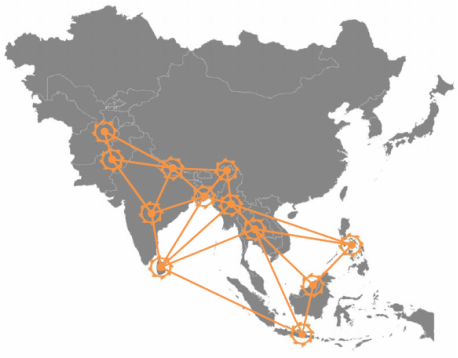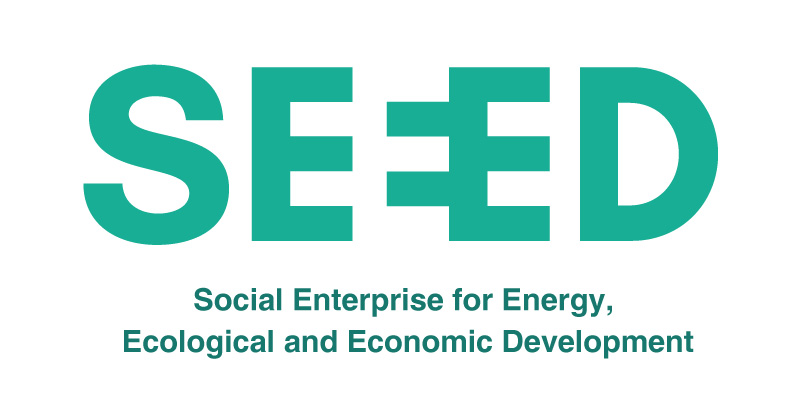Hydro Empowerment Network (HPNET)
Curugmuncar Micro Hydro Village, Pekalongan Regency,Central Java, Indonesia. Credit: Asosiasi Hidro Bandung
Since 2023 Skat Foundation is hosting the Secretariat of the Hydro Empowerment Network (HPNET)
The Hydro Empowerment Network (HPNET) is a dynamic growing network of practitioners committed to the advocacy and advancement of sustainable small-scale hydropower (<1 MW) for climate resilient and equitable rural development in marginalized regions of the Asia-Pacific, Latin America, and Sub-Saharan Africa.
Skat Foundation’s support comprises:
- Recommending on the general network structure to adapt it to the rapidly increasing number of members and participating countries, to improve internal and external communication and to identify and link with strategic partners and supporters
- Assistance in the preparation and facilitation of the Annual Gathering Nov 2016 in Kathmandu
- Preparing and implementing in cooperation with HPNET and energypedia the “Mini-Grid Webinar Series“: Micro/Mini hydropower in the context of Grid Interconnection, Productive End Use, and Technology Differentiation”

Micro hydro feasibility training, Shan State, Myanmar. Credit: D. Vaghela

Micro hydro forebay structure, Shan State, Myanmar. Credit: D. Vaghela
For practitioners from the whole region there is enormous potential to learn from each other through HPNET and to strengthen advocacy on micro/mini hydropower. The network helps its members to find solutions to policy, technology, social, economic and environmental challenges which include e.g. turbine and control technologies, grid interconnection, business models for sustainable operation and management, financing options, productive use of energy and catchment area protection. The clear strengths of HPNET are its demand-driven and output-focused approach and the members’ enthusiasm and motivation for exchange.
HPNET Approach: The SEEED Initiative
In 2022, HPNET launched the Social Enterprise for Energy, Ecological and Economic Development (SEEED) initiative which pursued a series of learning opportunities to unlock the full potential of hydro mini-grid practitioners and communities in different regions. SEEED is HPNET’s approach for community-scale hydro implementation. SEEED aims to support community-scale hydro practitioners and communities to achieve long-term, technical, environmental, institutional, and financial sustainability of their hydro mini-grids – towards climate and economic resilience.
The SEEED E-Learning series offered courses focused on the core elements of SEEED. The three online training modules launched in 2022 were:
- Fundamentals of Community-Scale Hydro Mini-Grids (6-weeks): This training utilized Modules A -F, covering fundamental implementation topics of community hydro systems. The modules targeted participants who are new to the sector and participants who needed to refresh their basic skills. Participants located near potential community hydro sites were encouraged to practice taking hands-on measurements for head and flow.
- Climate Resilient Solutions to Hydro Mini-Grids (5 days): This course covered solutions for climate resilience of community hydro systems, focusing on climate adaptation and mitigation resulting from watershed management of community hydro catchment areas. The curriculum covered watershed management phases, stakeholders, and best practices.
- Agroecological Benefits of Hydro Mini-Grids (1 day): This 1-day training focused on agroecological benefits and stakeholders of community hydro, including the theory and practice aspects of food forests and agro-processing end uses.
Complementing the virtual live sessions, a field-based workshop was conducted in Kalinga Province, Philippines with the aim of strengthening the capacity of local community leaders in advancing climate-resilient hydro mini-grids that have agroecological benefits. The overarching goal of this field-based post-training follow-up was to generate tangible benefits for rural communities in terms of building climate and economic resilience of their water-energy-food nexus –using community hydro.






